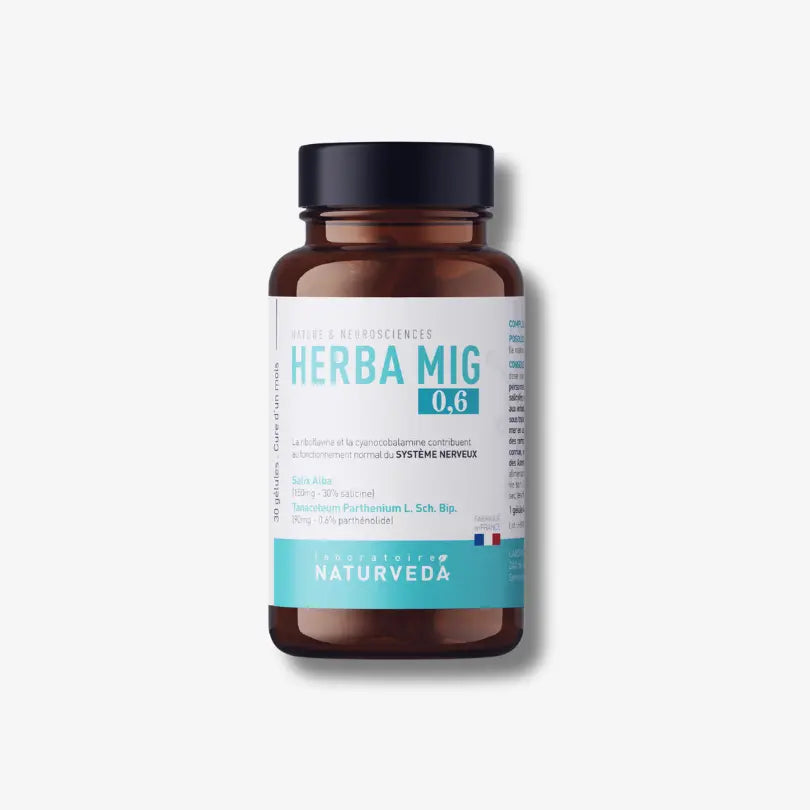At the base of the neck is a small, very important butterfly-shaped gland called the thyroid. It plays a role in the proper functioning of our body by producing thyroid hormones that act on several levels. And to do its job properly, the thyroid needs several essential nutrients. So which foods should you favor and which ones should you avoid? Explore these different categories in our article!
Understanding the link between diet and thyroid
Thyroid Nutritional Needs
The thyroid is an organ that produces two major types of hormones: thyroxine (T4) and triiodothyronine (T3), both of which are important for vital bodily functions.
To produce these hormones, the gland uses iodine , a mineral that is usually found in small amounts in certain foods. Thus, without iodine, hormone production is slowed down, which can then cause a thyroid disorder called hypothyroidism (which results in a slowed metabolism, weight gain and chronic fatigue).
In addition, the thyroid also needs a known powerful antioxidant, selenium . This allows it to protect itself from the effects of oxidative stress and facilitate the conversion of T4 into T3.
Finally, zinc is also an important player in good thyroid health, since it helps in the production of hormones and participates in the body's immune processes.
Poor nutrition can lead to thyroid imbalances
Today, we know how to recognize several thyroid disorders, such as hypothyroidism (underactive thyroid) or hyperthyroidism (overactive thyroid). And these imbalances can have various causes, for example deficiencies or excesses of certain nutrients. Indeed, diets low in iodine are often associated with hypothyroidism, while excessive consumption of certain goitrogenic foods (cruciferous vegetables, soy, sweet potatoes, etc.) can lead to poor absorption of iodine and therefore promote the development of nodules or goiters. We can therefore say that poor nutrition can lead to the appearance of thyroid imbalances.
Foods to Promote for Thyroid Health
Essential Nutrients for Thyroid
- Iodine is the first essential element for the production of thyroid hormones. It is found naturally in iodized salt, but also in seafood, fish and seaweed. Be careful, however, because some seaweed (such as kombu) contains very high levels of iodine, and excess iodine can lead to the development of hyperthyroidism.
- Selenium is also essential for a healthy thyroid. It is found in Brazil nuts, oily fish, dairy products, meats and some varieties of mushrooms (such as button mushrooms). Selenium helps protect the thyroid from oxidative stress, which can damage it in the long term.
- Finally, we can also talk about zinc . It is indeed a versatile mineral, essential for the production of thyroid hormones and the proper functioning of the immune system. To find zinc, consume foods such as beef, poultry, legumes, pumpkin seeds, seafood. A zinc deficiency can affect the metabolism and hormonal regulation of the thyroid.
Focus on some food categories
As you will have understood, fish and seafood more generally are interesting foods to consume for a healthy thyroid. Indeed, fish (such as mackerel, sardines, salmon) provide an essential iodine intake. And they also contain omega-3 fatty acids, known for their anti-inflammatory properties. These foods support the thyroid, but also the cardiovascular system.
A second category of interesting foods is cruciferous vegetables . Be careful, however, because these raw vegetables are high in goitrogens, which traditionally reduce iodine absorption (when consumed in large quantities). This is why cruciferous vegetables such as cabbage, broccoli or cauliflower are beneficial if eaten cooked . Indeed, cooking them reduces the risk of poor iodine absorption. In addition, these vegetables are rich in fiber, vitamins and minerals.
Finally, we can finish this part with foods rich in antioxidants such as berries (blueberries, raspberries). These fruits help reduce inflammation and protect the thyroid. In addition, foods rich in vitamins A, C and E , such as carrots, citrus fruits, and nuts, are also beneficial for the thyroid and for general health.
Foods that harm thyroid function
Foods high in goitrogens
- Soy is known to be high in isoflavones , compounds that can interfere with iodine absorption. While the effects of soy are still being analyzed and understood, for people with reduced thyroid function, it may be best to limit soy and soy -derived foods (tofu, soy milk, edamame). Be careful, it is not a question of eliminating it completely, except of course on the medical advice of a health professional.
- Sweet potatoes are rich in caffeic acid , which can have a slight goitrogenic effect. However, the goitrogenic potential of sweet potatoes is generally low and only poses a risk if they are consumed in very large quantities and raw, which is quite rare. Prolonged cooking also helps to reduce the presence of these compounds, which further reduces their impact.
- Radishes and other root vegetables contain sulfur compounds called glucosinolates . When metabolized, these molecules release substances that can prevent the thyroid from absorbing iodine. While the mechanism is similar to that of cruciferous vegetables, the effect of radishes and root vegetables is less pronounced.
Nutrient absorption inhibitors
In addition to foods high in goitrogens, there are also other foods to avoid in order to maintain a healthy thyroid, as they contain elements that degrade the absorption of nutrients. First, there are phytates , which are found in whole grains, legumes and some vegetables. They can prevent the integration of minerals such as zinc and iron. Again, there is no question of completely eliminating these elements from your diet, but it is advisable to prepare them correctly to reduce their impact on the absorption of these minerals.
Processed foods and excess sugar
As with any other person's diet, it is recommended to avoid ultra-processed foods, high in added sugars and fats . This is because they increase the risk of chronic inflammation, which can lead to hormonal imbalance. In addition, they do not contain any of the nutrients necessary for thyroid health and can even weaken metabolism in the long term.
Finally, while sugar does not have a direct effect on the thyroid, it can have a negative impact on hormonal balance. This is why it is advisable to limit sugary foods to better regulate metabolism and avoid weight fluctuations, which can put stress on the thyroid.
Conclusion
In conclusion, a proper diet is essential to support the thyroid and maintain a good hormonal balance. Limit raw goitrogenic foods, foods containing phytates, ultra-processed and sugary products. And favor foods rich in iodine, selenium, zinc and antioxidants. By paying attention to your diet, you can participate in the proper functioning of your thyroid and thus optimize your metabolism.






